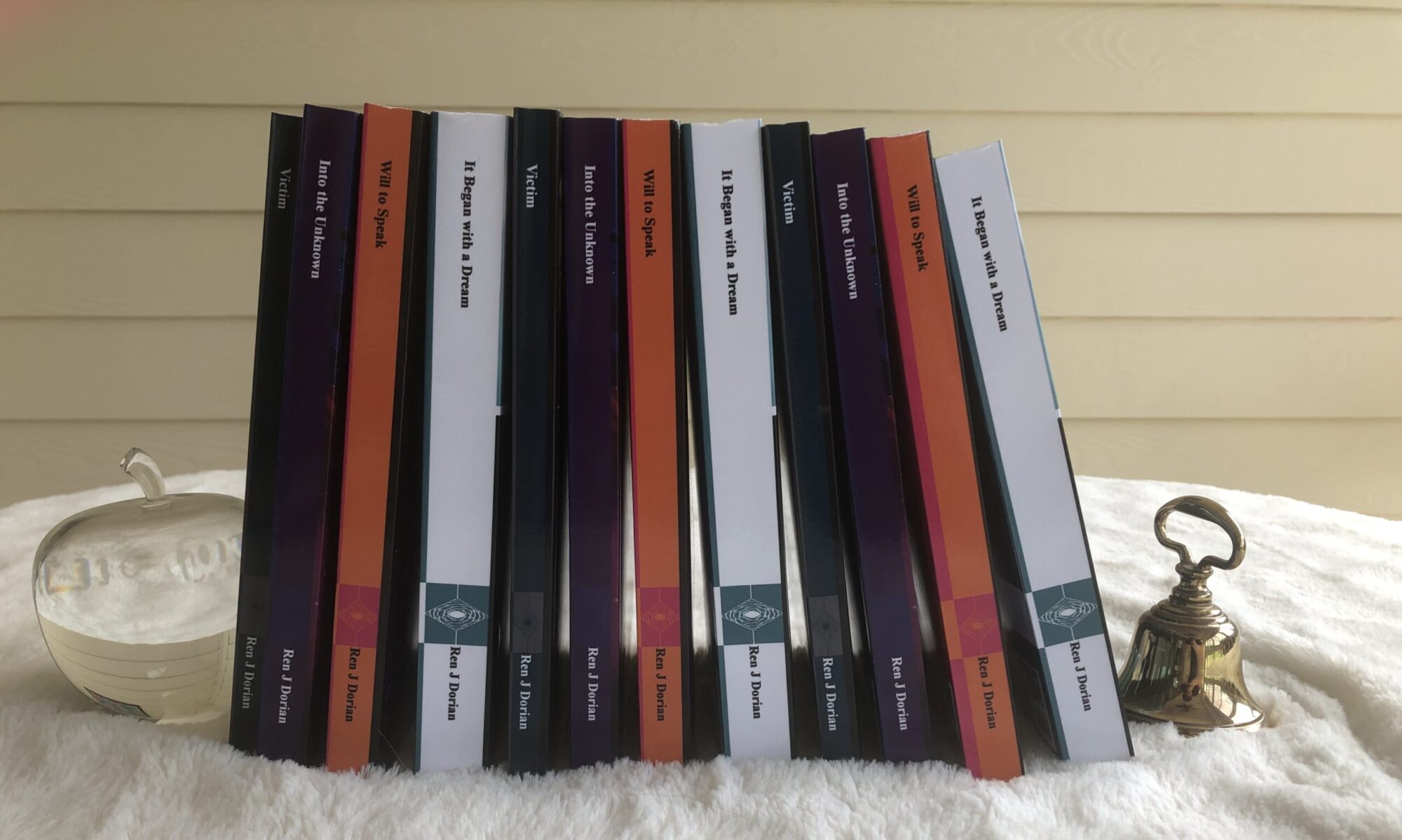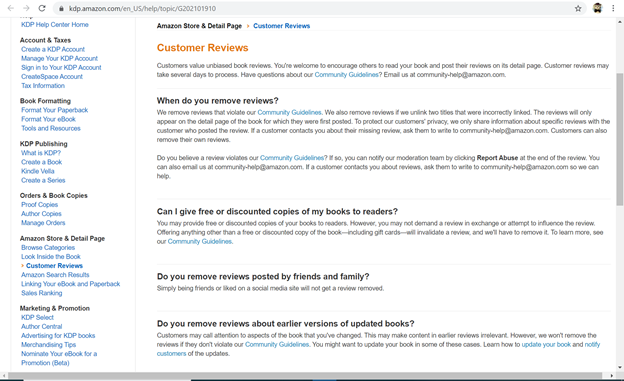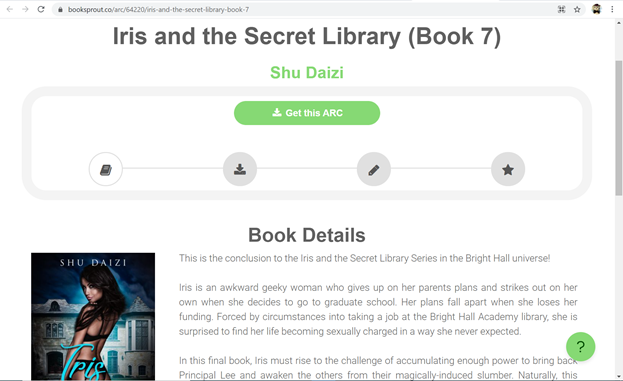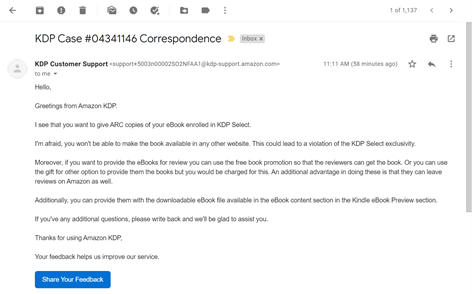[Blog]
There is so much conflicting information out there. The community guidelines aren’t always particularly clear either. In this blog post, I’m going to go over two recent things that have happened.
First, I got a 1-star review on Into the Unknown. The reviewer was clearly taking issue with the fact that I have my pronouns in my bio. They also critiqued the fact that I have a genderfluid character whose pronouns I actually respect. It consisted, overall, of a long rant claiming I had an inability to put basic sentences together. I panicked a bit and reported the review to Amazon.
I also messaged a writer I know on twitter about how to handle the situation. The advice I received was basically to report it myself and convince as many people as I can to also report it. I got lucky – it was taken down in less than three hours after I reported it. The reason I’m writing about it here? In a blog post with this title? It made me question why I was targeted in the review (beyond the obvious).
The reviewer explicitly called out my pronouns in my bio. They misquoted it and tried to use my own words against me (I have a snippet in there about working in the school system). Part of the problem might be that my pronouns were at the top of my bio. I have also used my non-normative pronouns (they / them) for the bulk of my bio, as opposed to the more normative he / him.
I am proudly non-binary. And I have been out for years. I know I don’t pass particularly well (and my author pic gets read in a few different ways, most of which work against my pronouns). But the pronouns were clearly visible after my name. I have since moved them to the bottom of my bio. That way, I don’t feel like I’m compromising myself by lying or stepping backwards. But, at the same time, lazy trolls would need an extra click to find that info.
I also have a pronoun-free version of my author bio that I have used for anthologies. I’ve learned the hard way that the vast majority of editors I’ve worked with DO NOT accept they/them pronouns. It’s uncommon for someone to overwrite my bio with the wrong pronouns, but that has happened in the past. I am strongly considering putting the pronoun-free version on amazon. I’ll still include the paragraph I added at the end requesting they/them or he/him pronouns, but the body of the bio would be pronoun-free.
I am tremendously grateful that the review got taken down. However, it’s hard not to think about how to prevent that from happening again in the future. In all honesty, I’m not sure I can prevent it. I just hope that there’s a balance somewhere. And that I’ll be able to figure out where that balance is.
Here’s the second thing that’s happened: I was watching another video on Youtube that aims to teach new indie authors about publishing on Amazon. It was a list of rules not to break (that Amazon conveniently doesn’t necessarily tell you). One of the functions discussed in the video could easily be wielded against LGBT / minority authors. That is certainly frustrating, but it’s not the part that stuck out to me the most.
He basically argued against newbie authors seeking out reviews. There was no alternative provided, and the best the comments / summary could do was to tell us to let it happen organically. Reviews were the bottleneck to my sales / publicity for years. Sure, I have other areas to improve in (social media being an easy example). But there’s a reason why so many authors focus in on getting reviews.
Reviews are like social credit. They let someone else provide an opinion on our work. Sure, they can be heartbreaking (and, to some extent, nerve-wracking, especially at the beginning). But they definitely have their place in providing value. Beyond the social credit provided to readers, they also provide feedback to authors.
Sure, not all reviews are high quality. One of the first reviews I got on Into the Unknown was “I enjoyed reading this book.” The reviewer gave me five stars, but no real feedback. However, that five stars was my first review on that book after my pen name change. Having even just one review for a book looks a lot better than having none. Sure, a book with no reviews isn’t necessarily bad. It’s just that no one has contributed an opinion yet, so it becomes much riskier for a potential reader.
This youtuber / author accused review services (like Pubby Co, Booksprout, Author Marketing Club’s Reviewer Grabber Tool, etc.) of preying on authors. There are times when that’s probably true, especially with some of the shadier options I’ve seen on the internet. He was also adamant (in 2019) that Amazon will strike down these platforms and punish the authors that use them. I think, if Amazon actually tried that, they’d have a class action suit to contend with. But I may be wrong in that.
On the other hand, growing reviews organically? The internet doesn’t seem to know how to do that. In fact, I know it’s common for traditional publishers to solicit reviews. This means that even traditionally published books do not get all their reviews organically. But this is still a pointed reminder: regardless of what I do to market my books, they are still at risk.
What do I mean by that? I can not fully prevent piracy. I have a 50-page PR copy I can send out (as opposed to a full PDF), but someone could still use coding to manipulate the software on their Kindle to pirate from KU. (Yes, that happens. Don’t believe me? Google it.) I also can not prevent the mighty hammer of Amazon from crashing down on my books. Nor can I prevent people from exploiting that function I mentioned by targeting LGBT authors.
But, do you ever wonder what happened to John Locke? He’s the early kindle millionaire who famously admitted to buying fake reviews. And he still has his books on amazon [here]. His most recent blog post is from 2012, but I’m sure he still makes sales. Admittedly, I’m not a millionaire. But he publicly admitted to buying reviews and his books are still there. I think Amazon’s enforcement of the Community Guidelines is more selective (or, perhaps, algorithmically unintentional) than what they say publicly.
From what I can find, this Youtube content creator doesn’t offer any suggestions for how to “organically” grow reviews. He advises against soliciting reviews, but doesn’t provide an alternative. Nor does he really account for the bottleneck that reviews can help resolve in marketing books.
Don’t know what I mean by bottleneck? A book with no reviews is a bigger risk in the eyes of the consumer. Even one review offers some social credit.
As a side note, that last [blog post] by John Locke is a really fascinating read from a marketing perspective. You could study it for either blog or email marketing. The lead is great and personal (which helps connect with the reader), it doesn’t look like an advertisement until the end, and it’s much more subtle than other attempts I’ve read. Admittedly, you didn’t see so many of these types of posts in 2012. No wonder he sold so many books, right?
On the other hand, does that make this blog post a lesson in what not to do? I’m not leading the reader into something about one of my books. This post isn’t technically literary citizenship either. I’m making some observations and posting them online on a platform I control. Sure, I have barely any readership on my blog. But, in theory, I’m still expected to use it for marketing. Not the weird combination of venting / observations / anti “hot takes” that I usually use it for.
(Hot take: Noun. “A piece of commentary, typically produced quickly in response to a recent event, whose primary purpose is to attract attention.” (Source: Google). None of my posts are anywhere near that short. Yes, I know I have a weird sense of humor 😉 )





